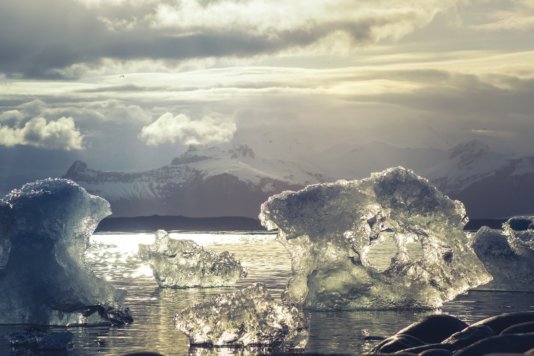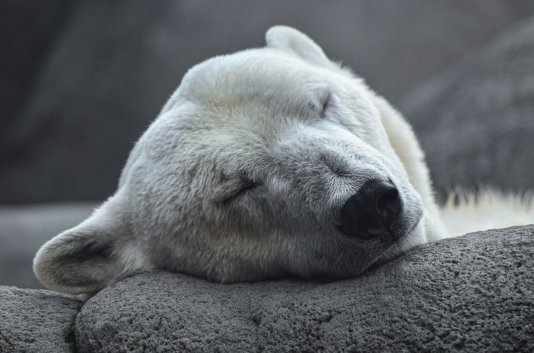- About
- Topics
- Picks
- Audio
- Story
- In-Depth
- Opinion
- News
- Donate
- Signup for our newsletterOur Editors' Best Picks.Send
Read, Debate: Engage.
| January 28, 2025 | |
|---|---|
| topic: | Global Warming |
| tags: | #climate change, #environment, #Arctic, #Antarctic, #melting ice |
| located: | Antarctica |
| by: | Ama Lorenz |
The most obvious sign of climate change in the Arctic is the rapid melting of pack ice, which refers to large masses of floating sea ice that form when ocean water freezes and compacts together. This ice has existed for thousands of years, playing a crucial role in regulating the planet’s climate. However, the impact of a warming planet extends far beyond the Arctic, with ripple effects felt worldwide.
Wildfires in California have become a frequent disaster, fueled by drier and longer fire seasons. While autumn in California has traditionally been warm and dry, since the 1970s, fire seasons have lengthened significantly, giving flames more time to devastate communities. This extension is closely linked to global warming, which disrupts rainfall patterns and leaves vast areas vulnerable to ignition.
Australia, a country already prone to extreme weather, is seeing similar climate-driven changes. Prolonged fire seasons, catastrophic floods, and relentless heat waves are becoming the new normal. Meanwhile, Europe is breaking “hottest temperature ever” records almost every year. Severe flooding regularly affects low-lying areas, with Venice on the brink of submersion and large parts of the UK at risk of permanent waterlogging by 2050.
What ties these phenomena to the Arctic? Everything. The Arctic and Antarctic hold vast reserves of freshwater in the form of ice, which play a critical role in regulating the planet’s temperature by reflecting sunlight back into space. As the ice melts, its reflective surface is replaced by darker ocean waters, which absorb heat instead of deflecting it. This feedback loop not only accelerates warming but also further amplifies ice loss—a vicious cycle pushing the climate closer to irreversible tipping points.
The melting ice sheets contribute to rising sea levels and disrupt ocean salinity, which, in turn, affects global ocean currents. Freshwater, being less dense than saltwater, spreads across the ocean surface, altering the natural “conveyor belt” effect of currents that regulate climate.
For example, the Gulf Stream, which brings warm waters to northern Europe, helps maintain the temperate climate of the United Kingdom. Should the Gulf Stream falter, the UK could face a drastic collapse of its agricultural system and experience freezing winters severe enough to make outdoor survival impossible within weeks.
The Arctic is warming at twice the rate of the global average. Ice that once persisted year-round now vanishes entirely for months during the summer, returning only weakly in winter. This transformation disrupts ecosystems and endangers Arctic species, as their habitats shrink. Coastal villages face constant flooding and are predicted to be submerged permanently within decades.
The migration patterns of marine mammals like whales and seals are shifting, and long-standing Inuit hunting traditions are being upended. These changes are too dramatic to attribute to natural cycles, despite claims by climate-change deniers.
Although the Arctic is approaching a critical threshold, there are still opportunities to slow or reverse some of the damage. Scientists are exploring innovative solutions to preserve the ice and restore its reflective properties. For instance, researchers are experimenting with covering large areas with white sheeting or reflective particles to mimic the effect of old ice and shield existing ice from further melting.
Newly formed ice, while thinner and less reflective than older ice, can have its albedo enhanced using mica beads, which boost its ability to reflect sunlight. These measures aim to mitigate the immediate impacts of ice loss and buy time for longer-term solutions.
On a broader scale, nations are working to reduce carbon emissions through renewable energy initiatives, sustainable farming practices, and increased recycling efforts. Transitioning away from fossil fuels and cutting pollution are critical steps toward reducing the atmospheric carbon dioxide levels driving Arctic warming.
The situation in the Arctic is urgent but not yet hopeless. Immediate action is needed to halt the melting of ice sheets, which, if lost entirely, would trigger catastrophic global consequences. US President Trump’s withdrawal once again from the global Paris Agreement to cut greenhouse gas emissions will deal a heavy blow to this fight. The Arctic’s fate is a stark reminder that the battle against climate change is a collective responsibility—one we cannot afford to lose.
Image by echoyan.
By copying the embed code below, you agree to adhere to our republishing guidelines.


